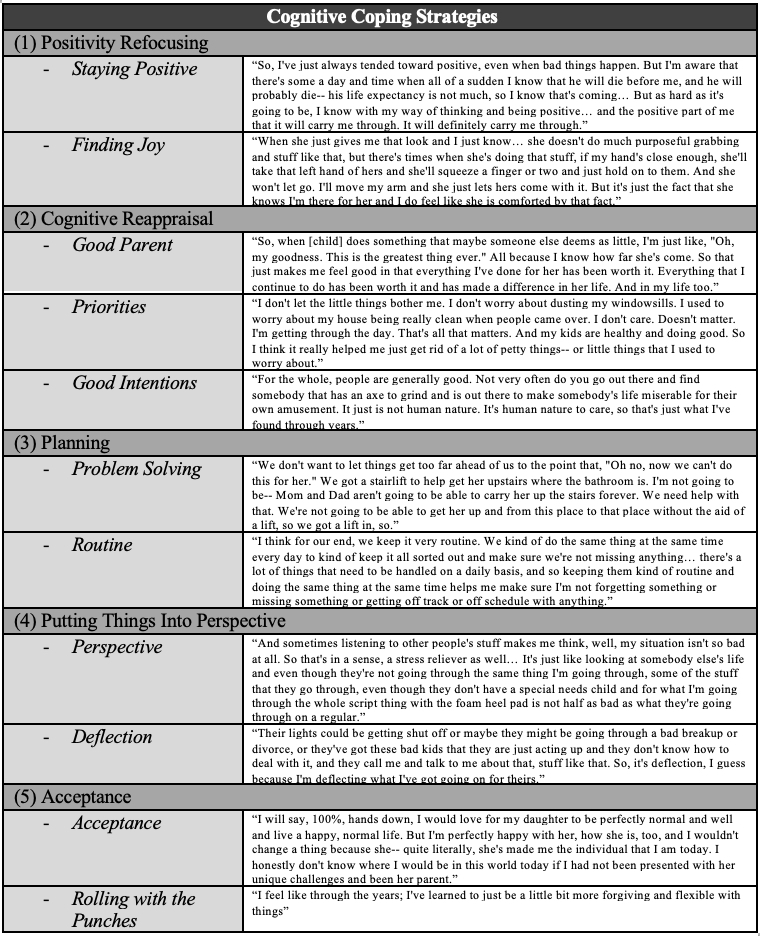Palliative Care
Palliative Care
422 - Tending Towards Positive: Cognitive Coping Strategies For Caregivers of Children with Medical Complexity
Friday, April 28, 2023
5:15 PM - 7:15 PM ET
Poster Number: 422
Publication Number: 422.147
Publication Number: 422.147
Mikhaila N. Layshock, University of Pittsburgh School of Medicine, Pittsburgh, PA, United States; Justin Yu, University of Pittsburgh School of Medicine, Pittsburgh, PA, United States; Lydia McLachlan, UPMC Children’s Hospital & University of Pittsburgh, Pittsburgh, PA, United States

Mikhaila N. Layshock (she/her/hers)
Medical Student
University of Pittsburgh School of Medicine
Pittsburgh, Pennsylvania, United States
Presenting Author(s)
Background: Family caregivers of children with medical complexity (CMC) report high stress levels and are at risk for emotional distress. The cognitive coping skills CMC caregivers utilize to deal with challenges and regulate their emotions are under-described.
Objective: To describe the cognitive coping skills caregivers of CMC employ to manage stress and regulate their emotions.
Design/Methods: We conducted in-depth, semi-structured interviews with family caregivers of CMC receiving care from our institution. We used constant comparative methodology, using a mixed inductive and deductive approach, to review interview transcripts and iteratively develop codes that illustrate caregivers’ self-described strategies for dealing with challenges. Three investigators independently applied the coding structure to all transcripts followed by in-person comparison and discussion to resolve all differences. Codes informed thematic analysis using the transactional model of stress and coping as an organizing framework.
Results: We interviewed 19 CMC family caregivers. Emotional regulation strategies discussed by participants fell into five main themes: 1) positive refocusing, 2) cognitive reappraisal, 3) planning, 4) putting things into perspective and 5) acceptance (see Table 1 for representative quotes). Positive refocusing includes thought processes such as celebrating positive developments related to their child’s health and relying on previous “wins” to remain hopeful in times of medical uncertainty. Cognitive reappraisal describes strategies that attach meaning to their caregiving role such as re-thinking life priorities and identifying themselves as “good parents.” Planning refers to how caregivers conceptualize problem-solving. This included approaches like establishing routines, thinking about the immediate problem and ignoring long-term implications, and creating step-by-step plans to handle complex issues. Putting things into perspective refers to minimizing the severity of their challenges through emphasizing relativity and social comparison. Acceptance refers to acknowledging and coming to terms with their child and family’s reality and not catastrophizing their situation.
Conclusion(s): Caregivers of CMC describe many cognitive-based coping strategies to better regulate their emotions in the context of stressful caregiving-related challenges. Interventions aiming to improve CMC caregiver well-being should consider cognitive coping skills as therapeutic targets.

